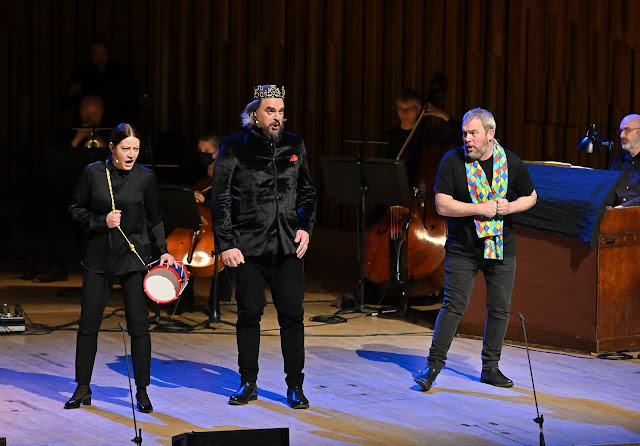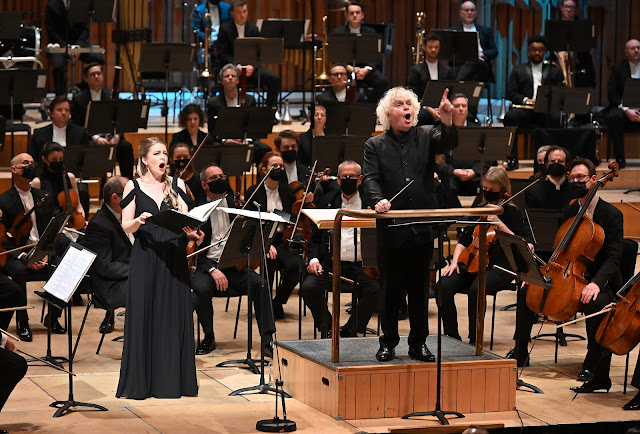Wigmore Hall
String Quartet no.1 in F major, op.18 no.1
String Quartet no.7 in F major, op.59 no.1
String Quartet no.12 in E-flat major, op.127
Alexander Pavolvsky, Sergei Bressler (violins)
Ori Kam (viola)
Kyril Zlotnikov (cello)
We lost so much in 2020: above
all, the lives of people across the world, more than 70,000 in this country
alone. Even if the deaths were to stop right now—they will not—the trauma as
well as the long-term physical consequences will haunt many of us for the rest
of our lives. The social and cultural consequences seem likely in anything
other than the longest term, notwithstanding hopes that may have been
expressed, to be deeply negative too. As we try to rebuild our lives and our
ways of living, stymied at all points by those wielding power over us, we
continue to grieve the loss of Beethoven in his anniversary year. The world
went deaf to his music, to all music, and stands only at the beginning of an
eminently reversible process of recovery. Beethoven’s music has long been
synonymous with hope. To begin 2022, then, with a series of his string quartets
from so fine an ensemble as the Jerusalem Quartet offers hope, meaning, and the
prospect of spiritual nourishment when still we need it most.
All of that would be to no avail, of course, were the performances not illuminating. This first instalment suggested strongly that they would be. There is no one way to play Beethoven: what would be the point of choosing between Furtwängler and Klemperer, Pollini and Barenboim, the Busch Quartet and the Végh? We need not, should not, and in this case heard something creditably determined, however illusory the idea, to permit Beethoven’s music to take new directions, not for their own sake, but simply by virtue of particular musicians taking, being inspired by, and rejoicing in decisions they took, in a particular place in front of a particular audience at a particular time. We have no way of knowing what they might have done in 2020, or what they will do in 2027. More to the point, we had no interest. Beethoven, music-making, and music-listening were back—and, as violist Ori Kam said at the beginning, it was a wonderful thing to see the Wigmore Hall full once again.
The first programme offered three quartets: one early, one middle-period, and one late, to my mind a better or at least more interesting idea than taking them in chronological order, not least since one cannot assume listeners will attend more than one concert. In this case, moreover, we heard the first (of those recognised as canonical), the first of the middle period, and the first of the late period. Conventional periodisation is only part of the story, of course, but what better way to hear how that might be deconstructed, or at least questioned, than by such a programming construction?
The F major Quartet, op. 18 no.1, immediately set up a number of dialectical oppositions (and potential unities), always the best evidence that we have reached the territory of the Hegel of Music. Quizzical yet certain in its direction, open to possibility yet inevitable, urgent yet expansive, this first movement showed composer and performers alike flexing their muscles and simply delighting in music, both in general and in particular. (The audience seemed to do so too, for that matter.) The intensity of the opening of its development section set out a stall to develop, and to develop as Beethoven; the threat, though only the threat, of chaos both led inevitably to the moment of return and kept us on the edge of our seats. The ‘Adagio affetuoso ed appassionato’ had a sad tread rather than trudge, its pathos rooted in harmony and counterpoint rather than applied to them, its contours, melodic, harmonic, and emotional, authoritatively traced. Vibrato was varied, especially by violins, to highly expressive effect. There followed a true scherzo, airborne yet grounded, gruffly humorous yet serious of purpose. Cross-rhythms delighted in themselves and propelled its progress. The trio called all into question and confirmed it. Perhaps similarly, the finale gathered up a good few of the aforementioned threads and unpicked a few more. It is not an easy movement, but I wondered whether there might have been here a clearer sense of direction. Better an enigma, though, than any attempt to smooth its edges. It was full of winning surprises.
With the advent of the first ‘Razumovsky’ Quartet, in the same key, mastery had long since been proved. ‘So now what?’ we were asked. Beethoven’s ease with the genre and the imperative to expand it played out with welcome humour, the tonal universe his oyster of exploration. Paradoxically perhaps, there was at times a greater Classicism here than earlier on, the first movement development’s counterpoint neither too effortful nor too effortless. Above all, once more, it developed. Moreover, the moment of return had an almost Mozartian rightness to it, though the joy of further development was to come. The second movement offered an absorbing, involving narrative, singular yet characteristic (not only of movements from a similar mould in Beethoven, but also of early Romantics such as Schubert and Mendelssohn). The temperature of clashes in motivic working out was entirely Beethoven’s own. And the players’ suavity of sign-off spoke of unmistakeable, unquestionably merited confidence. The slow movement’s richness of outpouring was grief-struck yet remarkably varied, the closer one listened. Eloquent, with no easy answers, it was the archetypal Beethovenian journey. Following a finely judged transition, the finale proffered transformation of mood that was yet rooted in what we had heard before. Sunny yet stormy, it restored or rather renewed that vital good humour.
Following the interval, we
heard op.127 in E-flat major. The sound of those E-flat chords announced
something very different: not only tonal relief, though certainly the contrast
was welcome, but also a different, if related, compositional world. The paradox
and/or dialectic of the terse and the expansive, of Romanticism and
(neo-)Classicism was immediately apparent in the first movement, ‘late’ pressure
toward fragmentation likewise unmistakeable. Here, if one does not sense an
enigma, an intellectual struggle, one is doing it wrong (or the performers
are). We were in good hands, though. The variations of the second movement,
still more so its theme, seemed to take their leave from the ‘Sanctus’ and ‘Benedictus’
of the Missa solemnis. This was holy
ground, without undue preciosity. The transformations of the third and fourth
variations spoke as if directly from Beethoven to us: a little crotchety, as it
were, yet with ineffably good-humoured eloquence; complex, yet with a mediated
simplicity that enabled us to appreciate the wonders of that complexity. In
that, they functioned as keys to unlock the form and meaning of the whole—and not
only of this movement. The scherzando’s quizzical concision, possessed
necessarily both of fragility of strength, prepared the way for a trio
according the impression of turning material upside down and inside out, in a
battle more overt yet allied. Webern would surely have understood. As, I think,
would Schoenberg the unquestionably ‘late’ willpower exercised in the finale to
make its material cohere. It was an intellectual effort, yes, undeniably so,
but at least as much an emotional one. And what material, what will, what
character this is. In a heterodox Haydn-cum-Bartók finale, Beethoven transcended
both.





